- Learning time
- 60 minutes
- First play time
- 180 minutes
Scythe
Designed by: Jamey Stegmaier
Scythe imagines an alternate reality for Europe in the 1920’s – a Europa where players are striving to establish themselves as the dominant faction.
It’s a heavy game in more ways than one – you don’t want to pick up the box with a bad back. The board represents the land the different factions (the players) will be contesting, a ragged landscape broken up by lakes and divided into hexes. Each player has a player board and faction board in front of them, which they interact with on their turn. There are four possible action ‘slots’ to choose from, each of which contains two actions – you can take either one, or both, assuming you can afford them. There are different currencies at work in the game – not just money (although it is the most important, as it will decide the winner) but resources (to build stuff) power (to battle other players with) and popularity (which acts as a multiplier for your achievements at the end of the game – if you are popular, they will be worth more. Potentially you may look dominant on the main board but lose because of your lack of popularity with the masses!)
It’s possible to upgrade these actions as play continues, making them both more rewarding and cheaper to activate. You’ll be trying to get your workers on the board, because they get you resources. You’ll be trying to get your mechs on the board (because they can attack other players, or defend your own territory) and you’ll be trying to upgrade your player board to make it more productive. You’ll also be exploring the land itself, and having encounters – these are a kind of storytelling aspect to the game as you come across people or situations where you have a multiple choice option of how to respond.
Each player starts with six stars that they get to place for meeting a certain achievement – getting all your mechs out is one, all your workers another. Getting to the top of the popularity and power rankings also rewards you with a star. Winning in combat can reward you with a star (to a maximum of two times) as well – in fact there are a number of ways you can get a star down. The reason the stars are key to the game is that the instant any player places their sixth star, the game ends and scores are tallied – which means the game is not only a race, it’s a balance between developing your faction as much as you can and keeping an eye on how much time you – or may not – have left!
Scores are tallied with players earning money (how much is decided by popularity) for controlled hexes, achievements and resources under your control.
Joe says
I've only played Scythe once so far, but I'm really looking forward to more plays. It feels like the evolution of the classic Risk style board game - epic in scope, but hugely streamlined in execution. To my mind, the perfect game to introduce to civ-and-strategy-videogamers, to demonstrate how far board games have come in offering a comparable face to face experience. Really rather brilliant.
The guru's verdict

-
Take That!
Take That!
There is combat in Scythe but it's not massively punitive for the defeated player.
-
Fidget Factor!
Fidget Factor!
Although you need a big table and a couple of hours to play in, Scythe plays pretty fast once you know it. On your turn, you take a maximum of two actions. That's it.
-
Brain Burn!
Brain Burn!
Familiarity minimises this considerably, and often your best option is pretty evident. But the game challenges you to streamline the various cogs in this metaphorical machine as best you can, so there is some thought involved.
-
Again Again!
Again Again!
We haven't covered everything above - factions have special powers, getting mechs on the board gets you bonuses, enlisting more people to your cause gets you bonuses (and potentially, a star)... there's a lot going on, and if you want even more variety just try playing different factions. The way combat works allows for some bluff and second-guessing too - you'd have to play Scythe quite a few times before you feel you know every last crevice.

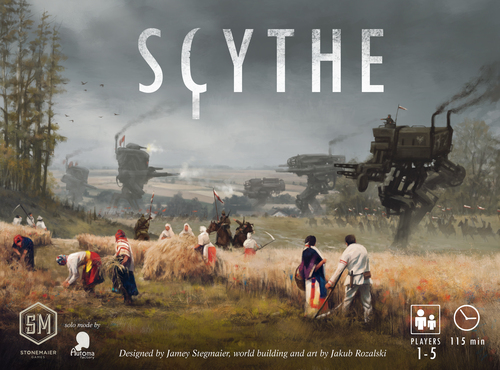
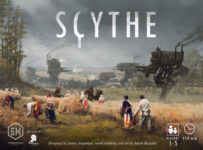
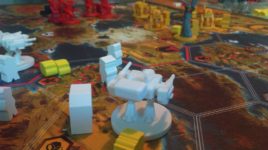
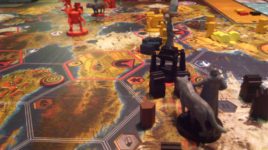


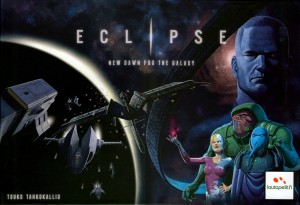
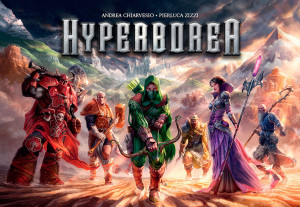
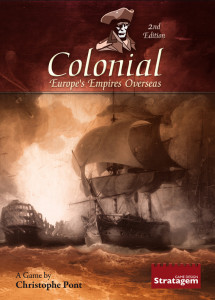
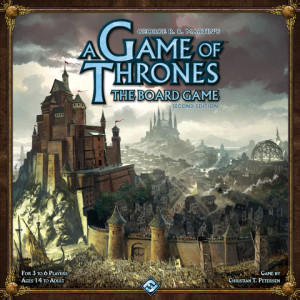
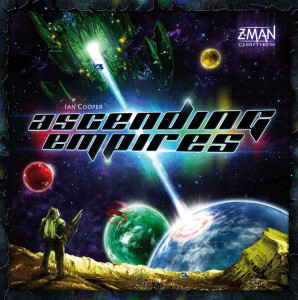
Sam says
Because of my preference toward shorter games Scythe isn't a game I thought I'd play a lot - but I think it's great, and because it plays so quickly, even a 2-hour game seems to move along at a rate of knots - it's not a game that should invite excessive pondering. And playing with three players who know the game can be really rapid! We've gone for a 12+ here but kids who are into games can play younger than that. Despite some oddly illogical rules regarding movement on the board, we've found this to be a corker.